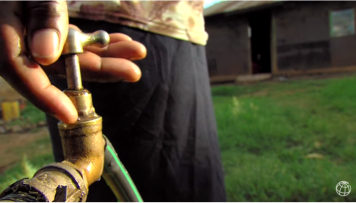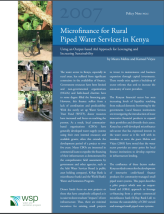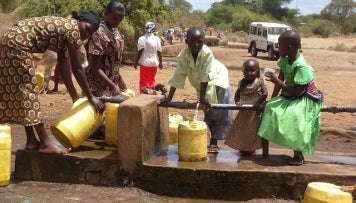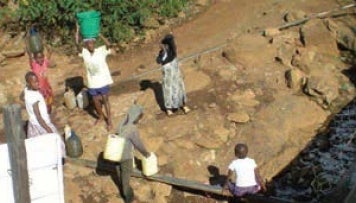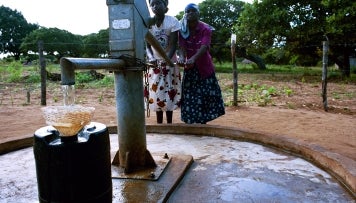Kenya: World Bank Grants US$11.8 Million to Provide 150,000 Residents With Water and Sanitation Connections
December 11, 2014|Press releases

Nairobi, December 11, 2014 – The World Bank, acting as administrator for the Global Partnership on Output-Based Aid (GPOBA), has signed a grant agreement with the Republic of Kenya approving funding of US$11.8 million to help expand access to water and sanitation in low-income urban areas. This innovative, coordinated program is projected to reach 30,000 low-income urban households – or 150,000 residents – and builds on lessons from a Kenya community-managed water pilot program which extended access to water to 190,000 beneficiaries.
“This is a significant step toward bringing more water and sanitation services to the poor, and demonstrates the Kenyan government’s confidence in the output-based approach, using resources from the public and private sectors,” said Diariétou Gaye, World Bank Country Director for Kenya.
The project is facilitated with funding from the Swedish International Development Cooperation Agency (Sida), and will be managed by the Water Services Trust Fund of Kenya (WSTF). It will help water service providers access loan finance from commercial banks to invest in water and sanitation subprojects, with subsidies covering up to 60 percent of the cost of providing services to low-income households.
Output-based aid is an innovative approach to development financing, where payment is linked to performance. Under the Kenya agreement, water service providers will not receive the subsidy until water and sanitation services are functional and reach the target group.
“This project will help water service providers access commercial credit to expand water and sanitation services to poor urban areas, reducing the connection fee and increasing access for poor urban households,” explained GPOBA Manager Carmen Nonay.
Kenya Vision 2030, the government’s development program, includes universal access to water and sanitation as one of its goals by the year 2030. Rapid population growth and accelerating urbanization present growing challenges for developing countries in these sectors, where the cost of connecting to water and sanitation services is prohibitive for the poor. As previous grant agreements for water and sanitation have centered on the Nairobi areas, the capital city is not included under the terms of this project.
Ismail Fahmy Shaiye, CEO of the Water Services Trust Fund, stated: “We look forward to working with the World Bank and the Government of Sweden as development partners in this innovative financing scheme to bridge the public funding gap. Together and within the framework of devolved structures in our counties we can work toward improving the lives of underserved communities and making Kenya Vision 2030 a reality.”


